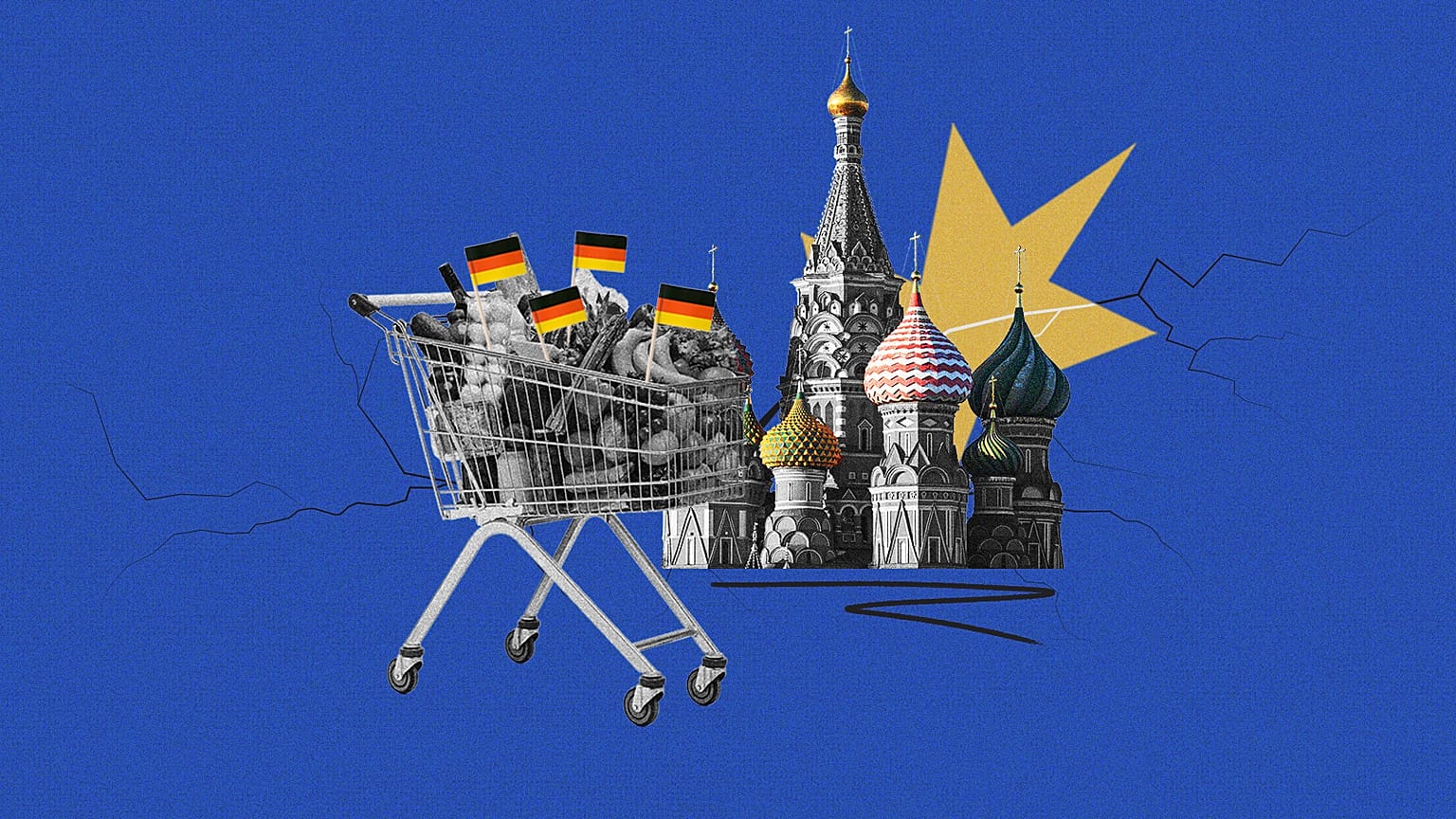Business
German Firms Contribute €1.72 Billion in Taxes to Russia’s War Effort

German companies have paid nearly €1.72 billion in taxes to Russia since the invasion of Ukraine in early 2022, raising significant concerns about their financial contributions to the Kremlin’s war efforts. Despite these figures, more than half of the German firms that operated in Russia before the conflict continue their operations today, according to a recent report from the Kyiv School of Economics (KSE).
The report highlights that around 250 German companies remain active in Russia, legally fulfilling their obligations while critics argue that their presence supports Russia’s economy and indirectly funds its military operations. Notably, this amount is sufficient to finance approximately 10,000 attack drones used against Ukrainian targets.
Nezir Sinani, the director of B4Ukraine, a coalition advocating for the cessation of international financial support to Russia, stated, “Companies support Russia’s war economy through the taxes they pay.” He emphasizes that remaining in Russia implicates these firms in the ongoing conflict. According to Sinani, “This is a loophole that must be closed.”
In 2024 alone, international companies operating in Russia paid at least €17.2 billion in taxes. The total contributions since the invasion have surpassed €51.8 billion, representing nearly half of Russia’s projected defense budget of €125 billion for 2025, as per the International Institute for Strategic Studies. This funding could potentially support over a million Russian soldiers.
While German firms are the second-largest taxpayers to the Kremlin, following US companies, many have defended their continued presence in Russia. For instance, cheese manufacturer Hochland stated, “We have a responsibility toward our roughly 1,800 employees and their families.” Hochland operates three plants in Russia and claims that withdrawing would ultimately benefit the Russian state more than their continued presence, despite acknowledging a “significant drop in profitability” in 2024.
The financial implications of leaving Russia have increased recently. In 2024, Russian Finance Minister Anton Siluanov announced that the costs associated with exiting the Russian market would rise, with taxes on business sales now set between 15% to 35%. Additionally, companies are required to offer larger discounts on asset sales, complicating the exit process for many foreign businesses.
The KSE report indicates that only 12% of international companies have fully withdrawn from Russia since the conflict began, with around 54.8% still active in the market. Among German companies, approximately 55% of those operating before the invasion continue to remain.
The situation for companies like Knauf has come under scrutiny as well. Research conducted by Germany’s public broadcaster ARD revealed that Knauf was involved in the reconstruction of Mariupol, a city devastated during the war. While Knauf denied any direct support of the Russian military, they acknowledged that negotiations to withdraw from the Russian market had failed, stating, “The negotiation partner broke off the talks.”
Sinani argues that the involvement of German firms in Russia goes beyond tax payments. He warns that by remaining in the country, these companies risk becoming entangled with the Russian military. “The number of German companies propping up the Russian economy is unjustifiably high,” he said, calling for immediate action to prevent further contributions to the conflict.
Despite sanctions imposed by the EU and other governments aimed at curtailing Russia’s economic resources, the continued presence of international companies complicates these efforts. Since the war began, various sanctions have targeted individuals and imposed economic restrictions on Russia. Yet, the effectiveness of these measures has been questioned, with Sinani stating, “The only reason some people believe sanctions don’t work is because they have not been fully enforced.”
As the war continues into its third year, the call for a complete withdrawal of foreign companies from Russia grows louder. “Drop the keys and leave immediately,” Sinani urged, asserting that the moral imperative to exit far outweighs the financial considerations for these businesses. The ongoing conflict has already cost countless lives, and the message from advocates like Sinani is clear: the time for action is now.
-

 Health3 months ago
Health3 months agoNeurologist Warns Excessive Use of Supplements Can Harm Brain
-

 Health3 months ago
Health3 months agoFiona Phillips’ Husband Shares Heartfelt Update on Her Alzheimer’s Journey
-

 Science1 month ago
Science1 month agoBrian Cox Addresses Claims of Alien Probe in 3I/ATLAS Discovery
-

 Science1 month ago
Science1 month agoNASA Investigates Unusual Comet 3I/ATLAS; New Findings Emerge
-

 Science4 weeks ago
Science4 weeks agoScientists Examine 3I/ATLAS: Alien Artifact or Cosmic Oddity?
-

 Entertainment4 months ago
Entertainment4 months agoKerry Katona Discusses Future Baby Plans and Brian McFadden’s Wedding
-

 Science4 weeks ago
Science4 weeks agoNASA Investigates Speedy Object 3I/ATLAS, Sparking Speculation
-

 Entertainment4 months ago
Entertainment4 months agoEmmerdale Faces Tension as Dylan and April’s Lives Hang in the Balance
-

 World3 months ago
World3 months agoCole Palmer’s Cryptic Message to Kobbie Mainoo Following Loan Talks
-

 Science4 weeks ago
Science4 weeks agoNASA Scientists Explore Origins of 3I/ATLAS, a Fast-Moving Visitor
-

 Entertainment4 months ago
Entertainment4 months agoLove Island Star Toni Laite’s Mother Expresses Disappointment Over Coupling Decision
-

 Entertainment3 months ago
Entertainment3 months agoMajor Cast Changes at Coronation Street: Exits and Returns in 2025









